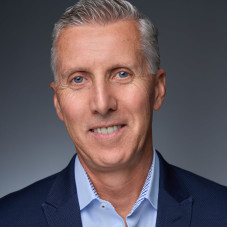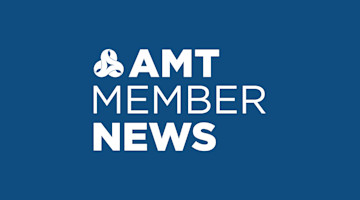If you are reading this, say, three weeks after Jan. 1 and happened to make a resolution on that day, odds are better than average that your resolution has fallen by the wayside.
Let’s face it: You are a busy person, and the resolution adds something to your daily routine, even if it is not doing something. If you decided that you’re going to forego a midmorning coffee, something that you’ve been drinking for years without a second thought, then in order not to have it, you need to think about it. As you’ve got plenty on your plate already, it is easier not to do the work – and it is work – to change what you’ve long been doing.
This is not to say that I am against New Year’s resolutions. Far from it. I’ve found that if I don’t deliberately make changes – whether in my personal or professional lives – then continuing what I’ve been doing is really easy – until I realize that things around me have changed, and I have to scramble to react. Which is far from being a good way to work.
Given the tremendous changes that are occurring in the world – whether it’s the impacts of inflation and interest rates or continued supply chain inconsistencies – to think that we can continue to operate as though none of that is happening is a recipe for suboptimal success – at best. Doing what we’ve always done simply won’t cut it for any of us.
Last September I had the opportunity to meet with plenty of people from the United States and around the world at IMTS 2022. In November I spent time in Japan and Europe talking with people about manufacturing and manufacturing technology. These were people who work at different kinds of companies and organizations, people who range from plant managers to engineers, from association executives to sales managers. It gave me a collective perspective on what’s going on and how people are moving forward.
What is consistent across the board is an appreciation of the emerging and increasingly important technologies – like additive manufacturing, advanced automation, or digitally driven manufacturing – that are providing long-sought-after capabilities to small shops, midsized manufacturing firms, and massive factories alike.
One thing I learned is that these folks are all facing an array of challenges – as we all are – and they recognize that they need to change up their approaches to their businesses and organizations to operate effectively and efficiently – something we all need to do.
We are all facing issues that are testing us in terms of producing products, providing services, and, importantly, making profits. When I was in Germany, I talked to manufacturing people who are really up against some serious challenges: The inflation rate there was 10.4%, and it was 7.75% in the United States. It cost $7.30 for a gallon of gas. Natural gas prices were skyrocketing. And a major war is taking place not far away from them, about the distance from Chicago to Denver. None of this is good for business as usual.
In Germany there is a group of companies collectively known as “Mittelstand,” small to midsized manufacturers that tend to have specialization in their production.
One of the things that some of these companies that are providing equipment and products to the likes of BMW and Mercedes face – as is the case for those supplying GM and Ford – is the transition to electric vehicles. Everything from piston insertion automation to cylinder honing becomes far less relevant. And even if those Mittelstand companies have been making that equipment for 50 years and are really good at it, their customers don’t care because they need to change for regulatory and market demands.
When I talked with some of the Mittelstand owners and managers, I learned that they are working to determine (1) what they can continue to provide their existing customers, (2) their skillsets and capabilities that will be valuable to customers in other industries, and (3) what technologies they will need to make the shift.
They recognize that what was once a safe harbor is now being roiled by economic tidal waves. They can learn to surf, or they can get swept away. We all face these forces of change. Whether you’re in Seattle or Stuttgart, Indianapolis or Ingolstadt, maintaining the status quo is simply something that we can no longer do.
Which brings me back to the whole notion of resolutions, New Year’s or otherwise.
In 2023, we must resolve to do the work that will make our organizations more resilient and capable, more agile and responsive – regardless of industry. We’ve seen how the pandemic changed things in almost an instant, how we had to make changes in our operations. Just as resolutions can slip away, so can lessons learned. We’ve got to deploy our best practices, jettison those that no longer work, and find new ways of operating in order to deal with the changing environment.
Yes, this means we have to do something different, something extra. But the alternative could be having way too much time on our hands – and not productive time.
A view from the woods





